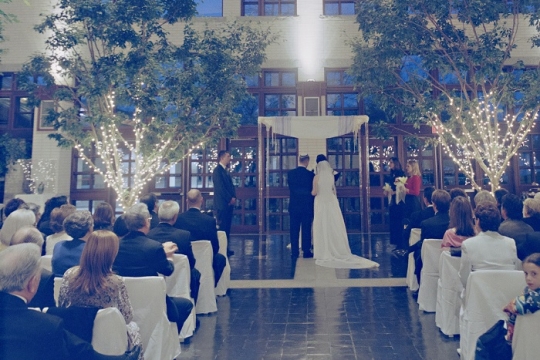
A brand-new baby is an astonishing being! How a tiny human could emerge from a mere bundle of cells, and the simple fact that any human being exists earthside, is truly remarkable. There are so many ways to build a family. For some people, bringing a baby into the world is a storybook experience: conception is fun, pregnancy is joyful, delivery goes smoothly, and the baby arrives healthy. However, many who pursue parenthood encounter hurdles like pregnancy loss, costly fertility treatments, medical trauma, or postpartum depression. Some families, like mine, are built through surrogacy or adoption.
When our son arrived via gestational carrier - birthed by my dear friend from rabbinical school - I started referring to God as “the Source of Science and Stardust.” After a four-year long fertility journey, it was astonishing that our son finally existed! I wanted to throw a party to celebrate him… after we got a little bit of sleep.
No matter how a baby finds its way into your loving arms, ancient Jewish wisdom and modern ritual innovation invite us to think thoughtfully about how to celebrate and honor their arrival.
Welcoming Your Baby: Brit Milah (Circumcision) or Baby Naming
What you decide to call a ceremony to welcome your baby may depend on many factors, but the core purpose is that you are welcoming your child into the covenant of the Jewish people. This is true regardless of your child’s gender – or genitalia. For a b’rit milah, the covenant of circumcision for children with a penis, one needs to contact a mohel/et - a person trained in the ritual of circumcision. You can ask your local synagogue for referrals or search the Brit Milah Program of Reform Judaism’s directory of trained medical professionals. Traditionally, a b’rit milah takes place on the eighth day of a baby's life. Many families host this gathering in their homes or at a synagogue. Some families choose to do the circumcision in the hospital followed by a communal baby naming at a later date.
Whether you celebrate your baby’s arrival at eight days, one month, or one year after the baby is born, a baby naming involves numerous rituals and blessings focused on gratitude, hope, healing, and memory. Some rituals may include welcoming the prophet Elijah in a special chair (kisei shel Eliyahu), ritually immersing baby’s feet, reciting the in gratitude, or reciting the Birkat HaGomel to pray for the recovery of the birthing parent. One essential moment is bestowing a Jewish name on your child.
Selecting a name for a baby is a tremendous task. Many people choose to bestow upon their child a shem kodesh - a Hebrew or Yiddish holy name. This name is used for occasions like BMitzvah, healing blessings, and wedding ceremonies. In Ashkenazi custom, a child is named in memory of a deceased loved one; in Sephardi tradition, children may bear names of living loved ones.
To find a meaningful name, try finding a name that corresponds with the first letter of a loved one’s name, is connected to their name’s meaning, or describes a quality they embody. ReformJudaism.org has a great list of names to get you started.
My Hebrew name is Ahuva Yedidah (beloved friend) - which corresponds to the letters of my “everyday” name - Jennifer Anne. My husband was born in Israel, so his Hebrew name is his everyday name. Many of the people in my family have a Hebrew name that is connected to music to honor my grandmother, the source of music in our family. It was a natural decision to select the name Shir (song or poem) for our son’s middle name.
When the naming blessing is recited during the ceremony, it's an opportunity to publicly share the meanings of your baby’s secular and Hebrew names. Take the opportunity to talk to them and about them: What are your hopes for baby? What family values do you want them to understand as they mature? Who in your family will bless and love them no matter who they become?
Welcoming your baby is a beautiful opportunity to craft a ritual to welcome your child into your family, community, and the Jewish people. As you welcome the next generation of your family, it’s important to find ways to honor your heritage and ancestors. Consider incorporating family heirlooms that you may have used in your wedding or other ceremonies in your past. Are you choosing to raise your child Jewish, but you wore a christening gown when you were a baby? Consider having the baby wear it to honor your past. Did you have a Jewish and Indian wedding? Consider using a sari or pashmina during the ceremony in place of a .
I love how Jewish tradition can hold us during major life transitions and allows us to adapt when necessary. On our son’s first Shabbat, we ate challah and in the hospital and recited the Priestly Benediction for him. A week later, when we brought him home (he was born out of state), we gathered our immediate family on Zoom for continued blessings.
After he was vaccinated, we gathered our extended families and friends to celebrate in person and threw a party! The song leader - whose music had escorted us to the at our pandemic micro wedding - sang us into the room, our families shared blessings, and many of the rabbis and cantors in our lives participated. We honored our gestational carrier, Jill, who helped wrap him in a tallit. We concluded with the seventh blessing from the , which had also been shared at our wedding, before dancing the , baby in tow. Finally, we ate a sheet cake that had a photo of his face printed on it. He slept through the whole thing!
However you decide to celebrate your baby’s arrival in the world, chances are they will need a diaper change or food at an important moment in the ceremony. So, pause, breathe, laugh, and take care of their needs - and welcome to parenthood.
Related Posts

Parenting Adult Children

Becoming B’nei Mitzvah at Any Age


